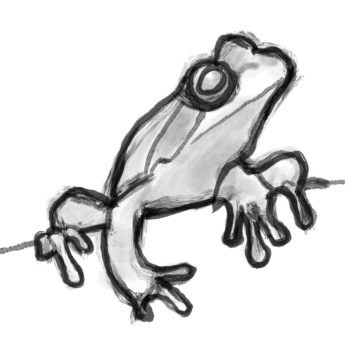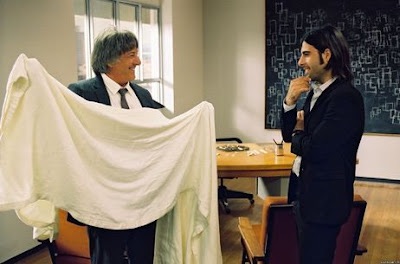Welcome to Blanket Theory! (Second post, belated welcomes all around!)
Here you can expect a blend of way-out chatter with a fellow traveler and the occasional puzzling whirling mystic. He has a point though, you know, you just have to learn to read between the lines. Those lines between lines are lines too, lines all the way down.
This is meant to be a home for anyone to have coffee and chat about their wild ideas about reality over cake and absurd pop culture references. Perhaps mentioning my background as an agnostic and Zen-Buddhist with Catholic flavor helps give some idea as to where I am coming from.
I realize that sometimes posts are a bit dense and assume some familiarity with Zen, I play with all my toys at once. Don’t worry so much about “decoding” everything, some things are meant to be paradoxical. They describe what I have experienced of a subtler reality that is, in the end, reality.
If the vast amount metaphors overwhelm, think about a lot of them as the ten-thousand things, the stand-in for an infinite amount of things, or all things. Zen, in this way, is not modest. Zen means to liberate every single sentient being. Because even if just one of us is not liberated, none of us are. There are a handful of things that are traditional metaphors for other concepts, but we can pick them up in a later blog post.
If I at least make you giggle, I am happy.
In the previous post we discussed how things can be Alright, even though they are not always alright. This isn’t just an unmotivated statement, it stems from undeniable direct experience of reality (that we all actually have). Now, with reality on our plates, “dig in” as they say. Let’s start with a quote from I Heart Huckabees.
Case #1: The blanket that ran away with reality
Case status: Everything is Alright, even though it might not be alright.
(Bernard): Say this blanket represents all the matter and energy in the universe, okay? You, me, everything. Nothing has been left out, all right? All the particles, everything.
Bernard is taking a bold leap here. Is everything you, see, feel some kind of blanket-substance? For now, let’s not worry about what the blanket is made of. We will dive into this in the next post, promise.
Reality and the self. Swaddling yourself in a warm blanket. Becoming the old sweater, knitted afresh. The resplendent yarn whispers of mysteries outside itself.
Reality and self. You, blanketness, both embodied alone. No blanket. No you. There is no becoming. Both disappearing like timid creatures observed too closely. They squeak with the roar of the noble rubber ducky.
These timid creatures are in fact your siblings. They are the ten thousand things. Is it all the blanket? In short, are all things really of one substance?
To be yourself is to be a single thread. Reality is a vast sea of fabric, folds undulating with waves, crashing upon the shores beyond which only Mystery can lead us. Can we be both ourselves and the other? Together, unraveled and remade, image within Image.
Clue #1: <recording> Diane, note this down: All things are our siblings. We are all only-children. I have a feeling there is more to this clue, what is the Self and why is it tailing me?
Look, our whirling friend just likes keeping warm *and* be at one with reality. But he is being a bit gentle, because we have to take one step, one following the other to reach where we already are. Stated plainly, let’s assume the surface blanket truth for now, that all things are really of one substance. Everything is fundamentally connected. There is ultimately nothing distinguishing us.
This makes me think about the film again. It brings together many ideas and approaches connected (ha!) with this stuff. At one point the film asks a simple question: “How am I not myself?” This manages to be equal parts hilarious and profound. One misstep here, and you might lose yourself.
The difference between conventional reality and what is being pointed at (the blanket?) is subtle. There is no difference between these realities. *sips coffee and winks* On the one hand, you can’t be in just one, but you can’t be in both. You are a hair’s breadth away from losing your balance while wearing snow shoes in summer.
If the blanket is out of sight,
How are you not yourself.
If the blanket truth is attained,
how are you not yourself?
This is a core question which reflects the danger of pursuing Zen with just words (words can help) and not direct experience. Will you exchange a moldy sandwich for a rotten cucumber? “Yes,” is a possible answer, under duress, but this might be missing the point. Don’t entirely trust the blanket truth naïvely, but it will help us pointing out the subtler truth. The blanket is just a raft to get to your destination, but inevitably you will have to discard it (or part of it) when reaching shore.
Seeing these two contrasting views of reality, completely contradicting and both true, and therefore not. How does it feel to exist in such a world. Exist, that is all. What does it mean to exist. You can’t not do it. How do you express this truth without having feelings and thoughts about it?
If this seems opaque, don’t worry, we keep going. Next time we will talk about seeing into this nature which is your true nature.
Clue #2: scribbling All things are our siblings, but we who are one are ourselves. How can the ten thousand things remain if oneness is attained?
If these posts inspire you, have a look at the practical tips page to get started.
Glossary
Some signposts on your journey.
- The Blanket — A metaphor from I Heart Huckabees, where a blanket represents all matter and energy in the universe, symbolizing the interconnectedness of everything.
- Blanket Truth — The provisional idea that all things are of one substance. A teaching tool, but ultimately something to let go of once deeper understanding is reached.
- Ten Thousand Things — A Zen expression for the infinite variety of phenomena in the world; shorthand for “all things.”
- Zen — A Buddhist tradition emphasizing direct experience and the use of silent meditation and/or apparent paradox in teaching. Both playful and profound, pointing beyond words to reality itself.
- Self — The sense of individual identity as something separate and unique. Questioned in Zen and in the film’s framing: “How am I not myself?”
- Only-Children — A phrase suggesting that while all beings are siblings (interconnected/sharing one being), each is also utterly unique in their experience.
Discover more from Blanket Theory
Subscribe to get the latest posts sent to your email.


